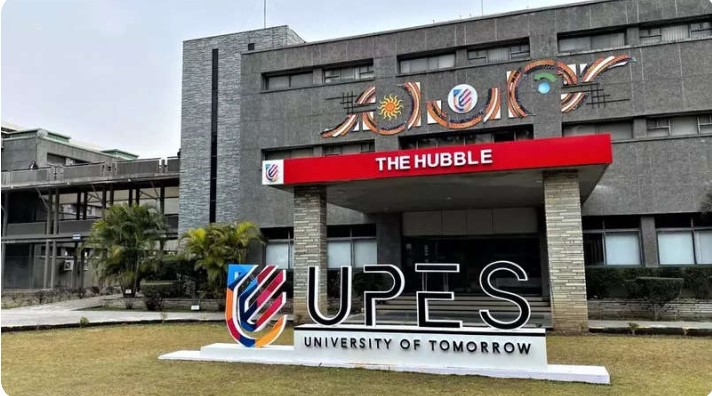The University Grants Commission (UGC) announced on June 14, 2024, a new fee refund policy for higher education institutions (HEIs) for the academic year 2024–2025.
UGC released a stringent notification on fee refunds and the preservation of the candidates’ original documentation. They ensured that the rules are followed by all colleges and universities.
Refund Policy:
- No student will be required by the institute to buy the college prospectus. He or she should be free to decide whether or not to purchase it.
- Every UGC standard pertaining to the fee refund information should be included in the prospectus.
- In order for the applicant to make an informed decision, all institutions ought to provide comprehensive information about their college, courses, costs, submissions, and applications on their official website.
- Only one semester’s worth of fees may be collected by institutions. The whole cost of the course cannot be paid in advance.
These guidelines would also be applicable to organizations, consortiums, committees, associations, etc., constituted for the purpose of conducting counselling or processing admissions and collecting fees on behalf of participating HEIs, and the HEI concerned will be responsible for refund fees.
HEIs are required to reimburse all expenses for student cancellations or migrations up until September 30, 2024.
HEIs may withhold up to Rs 1,000 as a processing fee on returns until October 31, 2024.
Following October 31, 2024: The terms stated in the October 2018 UGC Notification shall be applicable. Punitive measures as outlined in the 2018 notification may be taken against institutions that break the policy.
The UGC ruled at its 580th meeting on May 15 that HEIs must give all student cancellations and migrations up until September 30 a complete refund of costs. Refunds submitted through October 31, 2024, will be subject to a modest processing fee of up to Rs 1,000.
All Higher Education Institutions (HEIs) recognized by the UGC under Section 2(f) of the University Grants Commission Act, 1956, as well as those incorporated or founded under Central or State Acts, are subject to this policy.
This also applies to universities and other organizations that are thought to provide admissions counseling.

In the event that a candidate chooses to drop the course in which they were admitted, the institute will reimburse fees in accordance with the UGC guidelines listed below.
UGC Fee Refund Guidelines for 2024–2025
| Fee Refund | Duration |
| 100% | At least fifteen days in advance of the announced deadline for admission |
| 90% | 15 days or less prior to the final admissions date |
| 80% | within 15 days or fewer of the final admission date |
| 50% | within 30 days of the final day of admission, but not earlier than 15 days |
| 0% | over thirty days following the final admittance date |
Until the UGC issues an updated policy, this one will be in effect for the upcoming academic year.
It should be mentioned that the UGC has also given notice to the Redressal of Grievances of Students Regulations, 2023, defining one of the grievances as “delay in, or denial of, the refund of fees due to a student who withdraws admission within the time mentioned in the prospectus, subject to guidelines, if any, issued by the Commission, from time to time.”
The University Grants Commission (Redressal of Grievances of Students) Regulations, 2023, contain regulations that the Higher Education Institutions are requested to follow regarding fee refund policies for the academic year 2024–2025 and to address any grievances.
Clause 5 of the October 2018 UGC Notification on Refund of Fees and Non-Retention of Original Certificates notifies that any HEI that violates the terms of the UGC Fee Refund Policy 2024–25 would be subject to severe action.
No HEI may require candidates to purchase the institutional prospectus at any point while their study program is in progress. The decision to purchase a prospectus is entirely up to the applicant, who is free to decline and instead choose to view the information on the institutional website.
According to the UGC Guidelines on Students’ Enrollment and the Right to Information Act, 2005, all Higher Education Institutions (HEIs) must publish information on their websites and prospectuses about their affiliations, accreditation, and status.
Material resources and assets, approved student intake according to courses, varied costs for different programs, total fees for a program, faculty information, and the last day of admission. information that is required for an applicant to make an informed decision, such as members of governing bodies, minutes of meetings of groups like the Academic/Executive Council, sources of income, the organization’s financial status, and any other details
About University Grants Commission
The University Grants Commission (UGC) was established on December 28, 1953, and in 1956, an Act of Parliament made it a statutory organization of the Indian government. Its purpose is to coordinate, determine, and uphold the standards of teaching, examination, and research in higher education.
Established by an Act of Parliament in 1956, the University Grants Commission is a statutory body under the Ministry of Education, Government of India. Its goals are to carry out its statutory duties under this Act as well as to promote and coordinate university education and to establish and maintain standards for teaching, examination, and research in universities. The Commission counsels the Federal and State Governments on policies essential to the advancement of higher education in addition to awarding grants to qualified institutions and colleges.
The South Campus of the University of Delhi, 35 Feroze Shah Road, and Bahadur Shah Zafar Marg in New Delhi are the three places in Delhi where the UGC has offices.









